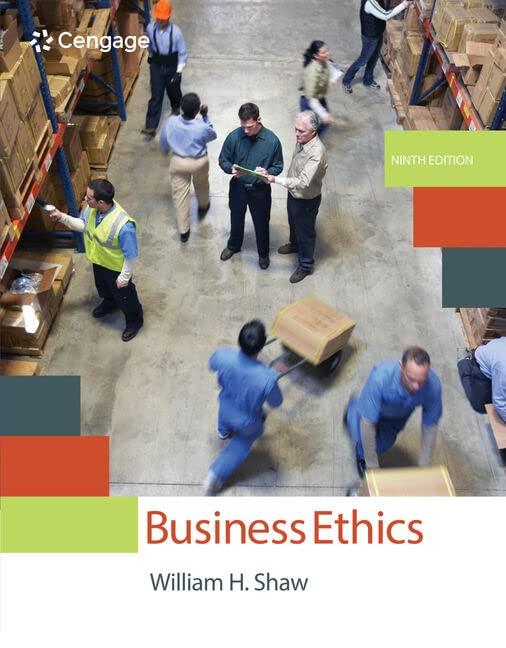THE HUGE CORPORATIONS THAT PRODUCE our cars, appliances, computers, and other productsmany of them household names like
Question:
THE HUGE CORPORATIONS THAT PRODUCE our cars, appliances, computers, and other products—many of them household names like Nike, Coca-Cola, and Johnson &
Johnson—are a familiar feature of contemporary capitalism.
But Walmart represents something new on the economic landscape. Now the world’s largest company, Walmart has achieved its corporate preeminence not in production but in retail. No other retailer, at any time or in any place, has ever come close to being as large and influential as Walmart has become. After years of nonstop growth, there are now more than 8,400 Walmart stores worldwide, and 140 million shoppers visit its U.S.
stores each week. And the company is opening more stores all the time as it moves beyond its stronghold in the rural South and Midwest and into urban America. In fact, 82 percent of American households purchase at least one item from Walmart every year. As a result, the company’s marketplace clout is enormous: It controls about 30 percent of the market in household staples; it sells 15 percent of all magazines and 15–20 percent of all CDs, videos, and DVDs; and it is expected to control soon over 35 percent of U.S. food sales. For most companies selling consumer products, sales from Walmart represent a big chunk of their total business: 28 percent for Dial, 24 percent for Del Monte, and 23 percent for Revlon.
Walmart is also responsible for 10 percent of all goods imported to the United States from China.77 The good news for consumers is that Walmart has risen to retail supremacy through the bargain prices it offers them.
The retail giant can afford its low prices because of the cost efficiencies it has achieved and the pressure it puts on suppliers to lower their prices. And the larger the store gets, the more market clout it has and the further it can push down prices for its customers.........
Discussion Questions 1. Do you like Walmart? Do you shop there? If so, how frequently? If not, why not?
2. Is there a Walmart store in your area? If so, has it had any impact on your community or on the behavior of local consumers? If there’s no store in your area, would you be in favor of Walmart opening one? Explain why or why not.
3. Is Walmart’s rapid rise to retail dominance a positive or a negative development for our society? What does it tell us about capitalism, globalization, and the plight of workers?
4. Can a retailer ever become too large and too powerful?
5. Is opposition to Walmart’s expansion a legitimate part of the political process or is it unfair interference with our market system and a violation of the company’s rights? Do opponents of Walmart have any valid concerns?
6. In 2015, Walmart raised its minimum wage to $9 per hour (up from the federal minimum of $7.25). Why do you think Walmart did this, and what impact do you think it will have?
Step by Step Answer:






